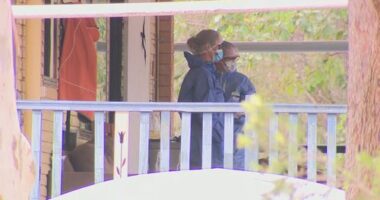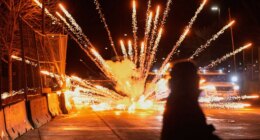Share this @internewscast.com
“Solar energy is a major industry implicated in Uyghur forced labor practices,” a representative shared with SBS News, highlighting a growing concern within this sector.
Former detainees have recounted harrowing experiences, reporting instances of torture, political indoctrination, and forced sterilization. They further allege instances of drugging and food deprivation used as punishment against those who resist.
“Is it akin to a prison? The conditions certainly seem so. Is it comparable to a concentration camp? I would argue it is,” one individual commented, shedding light on the severity of the situation.
The necessity for independent investigations is critical, as current insights are limited to what the Chinese authorities permit. “Without impartial probes, our understanding is restricted to the narrative China allows,” the source emphasized.
Fuzz Kitto, co-founder of Be Slavery Free, an Australian coalition dedicated to combating modern slavery, weighs in on the challenges faced by those seeking alternatives. “One significant challenge is the misconception that alternatives do not exist,” he noted, urging a shift in perspective.
Why aren’t Australian companies investing in solar production here?
Fuzz Kitto is the co-founder of Be Slavery Free, an Australian coalition of organisations that work to raise awareness and end modern slavery.
“I think one of the great difficulties is that people think that there are no alternatives,” he said.
“Why we aren’t producing them in Australia is beyond us.”
Limited anti-slavery law enforcement
“The Australian Modern Slavery Act is weak at the moment. It is being reformed, but we’ve been lobbying for an Australian forced labour import ban as well, which is outside the scope of the present reform process.”










